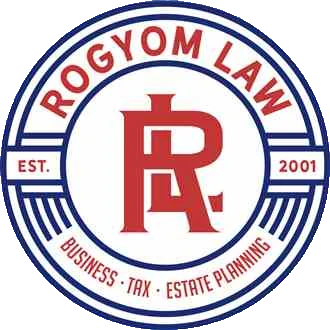Unlike most business debts, employees and owners of a Maryland business can have personal liability for the company’s tax debts. Similar to how the IRS pursues responsible persons and owners for payroll taxes, states, including Maryland, also pursue responsible persons and owners for certain state taxes. A person that normally would be protected from business liabilities by a personal liability shield, such as the corporate or LLC entity, will not be able to similarly avoid these tax liabilities.
The state of Maryland will pursue employees, managers, officers, and owners for unpaid taxes. The person does not need to personally benefit from the tax discrepancy and needs to have only either fit a certain profile or have been somehow responsible for the nonpayment. It does not necessarily matter that the employee was being ordered to act in a certain way. Regardless of whether it’s justified, merely signing a business check will give some IRS or Maryland Comptroller auditors reason enough to go after your personal assets.
The taxes that can lead to personal responsibility include: the Maryland sales tax, the Maryland use tax, the Maryland admissions & amusements tax, and Maryland employment withholding taxes. These taxes are sometimes referred to as “trust fund” taxes. The term references that, often, the business at issue is not the ultimate payer of the tax and merely collects the tax from a third-party for the state. Once in hand, Maryland and the IRS each treat these collected funds to be their money, and failing to pay it over deserves a harsh penalty. Maryland and the IRS both aggressively enforce these personal responsibility rules. But do not let the “trust fund” name confuse you. Personal tax liability rules also target responsible persons of businesses that are the ultimate payers of certain taxes, such as a buyer that fails to pay its sales or use tax or a business that fails to pay admissions and amusements tax, which is a gross receipts tax.
For Maryland employee withholding taxes, if an employer or payer fails to withhold taxes from an employee’s salary or fails to pay over taxes withheld from the employee’s salary, then the employer or payer can be held personally liable for the amount due the state of Maryland. Further, if the employer or payer is a corporation, then any officer who has direct control over the corporation’s fiscal management can be personally liable. In addition, any agent of a business who is responsible for withholding and paying the taxes can also be considered personally liable. If the entity is an LLC, then any person with direct control over its fiscal management can be personally liable. Fiscal management can include things such as: signing checks or returns, authorizing purchases of equipment, or making strategic business decisions.
Maryland uses a different standard to determine personal liability for its sales and use tax than it uses for withholding taxes and admissions and amusement taxes. Maryland sales and use tax statutes specifically provide that a corporation’s president, vice-president, and treasurer are personally liable for unpaid sales and use taxes. In addition, any corporate officer directly or indirectly owning more than 20 percent of the stock would also have personal liability. If the entity is an LLC or an LLP, but does not have a written operating agreement, then all members or partners will be considered personally liable. However, if the LLC or LLP has an operating agreement, then the Maryland tax statute concentrates personal liability upon those who manage the business and affairs of the company or partnership. “Management” includes signing checks or returns, authorizing purchases, or making strategic business decisions. The Maryland statute does, however, specifically exclude certain duties from being considered management for these purposes.
While responsible person determinations appear to be fairly mechanical, taxpayers can often rebut these Maryland Comptroller claims. This can be a difficult process, and a taxpayer should retain a tax attorney to represent them against a Maryland personal liability tax assessment.
If an employee, officer, owner, or other potentially responsible person finds themselves in a situation where they know the business is unable to meet its expenses, the person should use due diligence to make sure the company’s tax expenses are being paid. Unfortunately, neither ignorance of tax issues nor shifting responsibility to your superior will necessarily relieve you of potential personal tax liabilities. If a person finds that their business cannot survive without “borrowing” from the IRS or Maryland Comptroller, it is always advisable to consider closing the business before incurring a personal liability for the failing business’s taxes or to consider walking away from the business if you have no control over such decisions. A person interested in protecting themselves from such claims should consult a tax attorney to make sure their objections and/or departure from the business is well-documented.
For further information, please contact Jeff Rogyom at (410) 929-4578. Please review the Disclaimer page regarding use of this website and its information.

